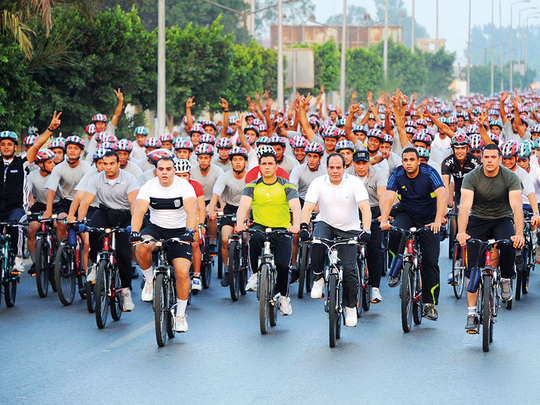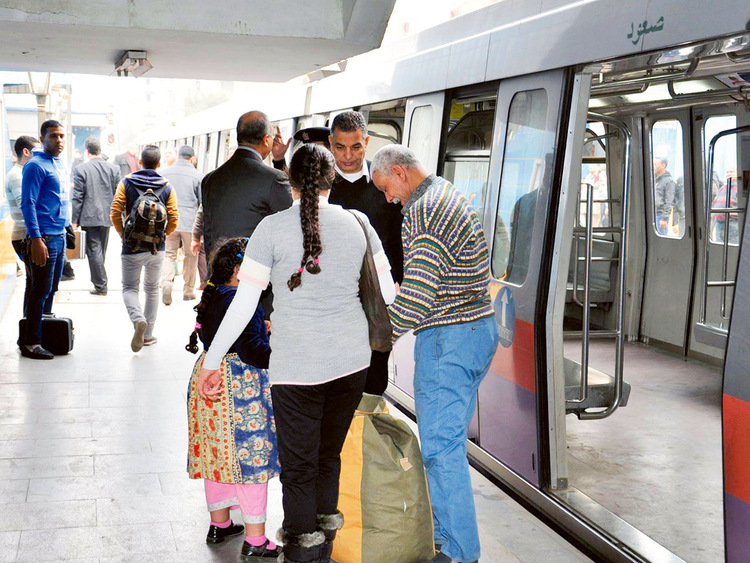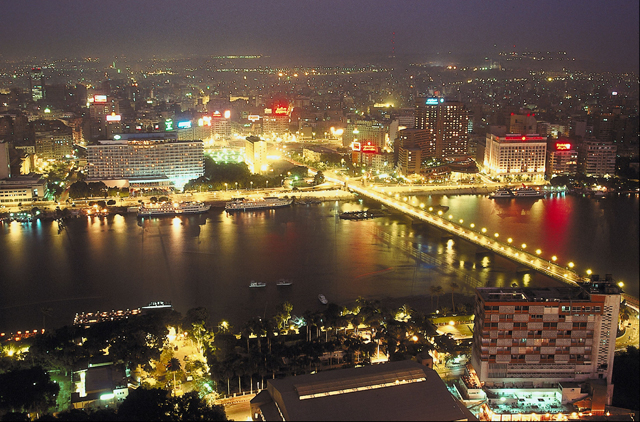
Cairo: Choked with high air pollution and chronic traffic congestion, the Egyptian capital is struggling to shed off this image.
Cycling seems one key. Local authorities in Cairo, one of the world’s most populous cities, this week unveiled a project aimed at weaning people from private and public motor transport to bicycles.
Titled “Biskelta”, Arabic for “A bicycle”, the project targets areas in the vicinity of the city’s subway system, pedestrians-only areas as well as surroundings of the main two state-run universities in Cairo.
Bicyle lanes
“The state seeks to encourage citizens to reduce the use of private cars by providing a safe and inexpensive means of transport in order to ease overcrowding and curb air pollution,” Cairo Governor Atef Abdul Hamid said after he signed an agreement on the project with the United Nations Humanitarian Settlements programme, UN-Habitat.
“Both sides have agreed on sites of the project, its management and building lanes for bicycles in the designated areas in order to ensure safe use of bicycle sharing.”
Abdul Hamid said that the project has received backing from President Abdul Fattah Al Sissi. Since he took office in 2014, Al Sissi has been seen on several occasions participating in street cycling rallies.
Young people, who account for more than 60 per cent of Egypt’s 93 million population, are the main target group of the group, according to Abdul Hamid.
The project, expected to cost 30 million Egyptian pounds (Dh5.1 million), is based on picking, riding and parking bikes in designated brackets.
“The bike-sharing system has been tried around the world and has proved success in encouraging the use of non-motorised transport,” Rania Hedeya, the UN habitat manager in Egypt, said at the signing ceremony.
“Cairo is seeking to benefit from global experiences in the transport field, especially those cutting pollution,” she added.
More than 20 million people are estimated to living in the Greater Cairo zone that includes Cairo and the adjoining cities of Giza and Qaliubia.
The Egyptian government is currently building a new administrative capital outside Cairo with the aim of easing population and bureaucratic pressures on the age-old capital.
The “Biskelta” project is part of ongoing efforts to upgrade the urban transport system in Cairo, according to Khalil Saad, an adviser to the Cairo governor.
“The bikes will become part of public transport in Cairo. They will be available at designated places where the citizen will ride the bike to reach the nearest place where he’ll leave it,” Saad told private television station Al Mehwar.
This bike-sharing scheme will be covered by a protection tracking system, the official added.
Public awareness
“There will be a public awareness programme before the project comes into effect.”
He did not provide details about the timetable of the project or fees for individual use.
The idea of introducing a bike-sharing system into Cairo has enthralled some residents of the sprawling city.
“This is good news for Cairo, its people and the environment,” Wajdi Mahmoud, an engineer, said enthusiastically.
“Encouraging people to ride bikes will certainly help in controlling air pollution, a matter that will have a positive effect on the public health and the capital’s environment.”
The 38-year-old man said he has the habit of riding his bicycle on weekends when Cairo usually has light traffic as part of his exercising.
“Doing this on other days will be a kind of madness because you can’t compete with cars and pedestrians, who don’t need any of road rules,” Mahmoud said.
“Let’s hope the ‘biskelta’ project will be the first step in spreading the bike culture in Egypt. Lanes for bikes should be part of the new network of roads,” he added, referring to an ongoing massive scheme undertaken by Al Sissi’s administration to revamp and expand the nation’s routes.













